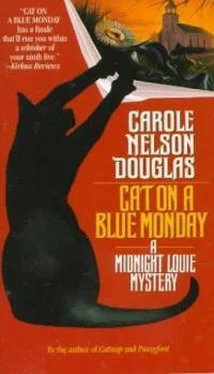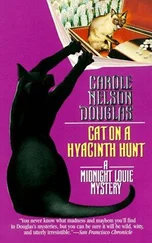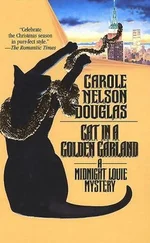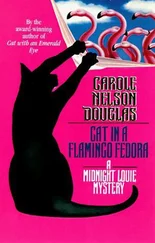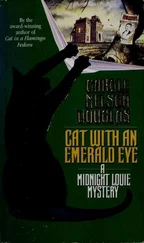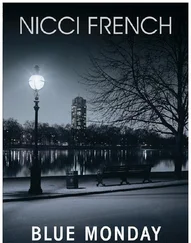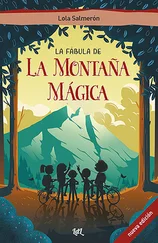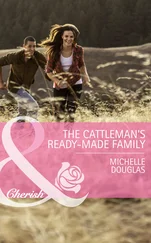Father Hernandez bestirred himself. "The church is also heir to her house?"
The lawyer nodded.
"And its contents?"
Again, a nod.
"I suppose we can delay the disposition of the cats." His hand brushed his forehead as if checking for a headache that he could not quite feel but suspected was there. "The . . .sisters can take care of them, perhaps arrange some better solution."
"The city authorities will not tolerate substandard conditions for long," Burns put in discreetly.
"No one is living in the house any longer," Father Hernandez said impatiently. "Why is it anyone's business but ours?"
"Because it is public knowledge now," the lawyer replied.
"Yes." Father Hernandez sounded depressed even further by this obvious news. "Public knowledge is all, even in matters of life and death. What will the public think? Well, be damned to the public!"
Matt winced at the fury in Father Hernandez's voice. He sensed that this very fury was what the pastor had been trying to douse in quarts of tequila.
"You don't mean that," Burns was saying in obvious contradiction of the facts.
When priests and lawyers tell each other lies, what is to become of the rest of us? Matt wondered. He felt his own unacknowledged bitterness rising like bile in his throat.
He glanced at Temple. She was watching the two men's interchange with the bright, uncommitted gaze of an observant bird. She cared about the cats, but at the moment she was measuring these men and their motives as the best way of defending the defenseless.
He wanted to be out of here, this room of subtexts and unspoken thoughts. To be alone in his bare rooms at the Circle Ritz, so devoid of personality and past, or back in his safe, soundproofed cubicle at ConTact, listening to long distance agony, eavesdropping on life.
Matt's palms felt damp. Much as he hated to admit it, Temple had been right. Something was drastically wrong with the state of Father Hernandez's body and soul. The will in the church's favor had done nothing to restore his peace of mind. The church development fund was the least of his problems. Might murder be the worst of them?
When Lieutenant Molina did as he had suggested, as she had meant to do anyway, and looked deeply at every person involved in this sad and apparently well-plotted death, what would she find?
Chapter 25
One Less Orphan Animal
"This is great!" Chortling, Cleo Kilpatrick pointed to the photos of bizarre-looking cats in both Las Vegas's Saturday morning and evening papers.
Temple nodded at the naked Sphinx on the Review-Journal second front and the semi-naked curly coated Rex in the Las Vegas Sun. She hadn't noticed her successful handiwork, mainly because she'd skimmed the papers for news of the possible killer's successful handiwork--the death of Blandina Tyler.
Beyond the two women stargazing at the local papers, cats, cages and breeders were bustling around the huge exhibition space in the process of shutting down the cat show. An entourage passed. From their midst, the exiting Maurice, the Yummy Tum-tum-tummy cat, gazed out majestically from a carrier emblazoned with his name and a portrait of the product he represented.
"I'm so glad," Cleo went on as her glance paused on the procession, "that you didn't get any more publicity for that dreadful Maurice. Frankly, commercial cat foods are not the best feline nutrition."
"Oh, are you a Free-to-be-Feline advocate?"
"Most definitely."
"Then tell me one thing: how am I supposed to get a cat to eat it?"
"It will take a bit of patience at first--"
"Wrong. It takes patience to the bitter end."
"Cats can be finicky."
"Louie isn't finicky. That's the only stuff he refuses to eat."
"Sometimes they have to be encouraged to do what's good for them. Don't feed him anything but Free-to-be-Feline. If he gets hungry enough, he'll eat it."
Temple nodded, not bothering to say that if Louie got hungry enough, he'd leave home. She wanted to avoid explaining that Louie was free to eat elsewhere, lest she get another lecture on roaming cats. Miss Tyler's cats seemed happy enough confined indoors, but they had been abused on the street. Louie hadn't; he had survived quite nicely without Temple or her Circle Ritz condominium. Any cat that showed the ingenuity to ensure that he could come and go deserved his freedom and whatever free lunch he could find, Temple thought.
Then her eye fell on another exiting cat. "What about that little black one?" she asked, pointing to the undecorated cage near the front registration table.
"You mean the Humane Society cat? Apparently no one adopted it. It'll go back to the shelter."
"Oh." Uh-oh. Temple edged over on tentative heel clacks. She didn't need another cat. More untouched mounds of Free-to-be-Feline. More black hairs all over her off-white sofa. As soon as she approached, the cat rose from its sitting position and began rubbing its face against the grille, gazing at her with big harvest-gold eyes, its little pink mouth opening in a series of silent meows. "How old is it?"
"Looks about nine or ten months," Cleo said.
"What is it?"
"Basic domestic shorthair in basic black. An ordinary alleycat", in other words."
"I meant the gender."
"Oh. Probably female. It would have to be fixed."
Temple read the small card affixed to the cage, "Caviar" Forty-five dollars with shots and a discount on spaying.
Temple reached out a hand, which the cat's jet-black nose instantly nudged. She stepped back as if the cage grille were electrified. This is how it began with Miss Tyler, she told herself: such a pretty, sweet cat; such a shame that no one would take it, that it would have to go back to the Humane Society. What was the matter with people? No one would probably take it there, either. Not a kitten, too old already.
Cats in cages were streaming out the open rank of exhibithall doors in their owners' firm grasps, fancy cats that were guarded, groomed and displayed like expensive dolls. Louie would probably go nuts with a competitor in the home place, but he was gone so much. She would enjoy having a calm, spayed female, a loving homebody, around.
A woman stepped up to the table and began gathering the Humane Society literature that surrounded the cage. Temple watched her resentfully.
"Excuse me." The woman stepped in front of Temple to take the card from the cage and stuff it into a canvas bag with the other unclaimed pieces of paper.
She opened the cage door, a pushy woman who didn't care about shoving a potential customer aside, so sure was she that it was too late and little Caviar had lost her last chance.
The woman reached in and took out a stainless-steel bowl of water, a small plastic litter box, somewhat used. Then the cat was trained. The Humane Society woman, who certainly didn't seem that humane if she was going to snatch this poor cat right back to a place where its life expectancy was maybe three days, reached in and removed a stainless-steel bowl of unappetizing green pellets.
Temple experienced an epiphany of the cat kind. "Oh," she heard someone saying in an enchanted voice, Hers.
"Does she really eat Free-to-be-Feline?"
The woman, who would have had a perfectly ordinary, nice face if she hadn't been intent on whisking a caged creature back to its doom, looked at Temple oddly.
"Sure," she said.
"Well, then--" Temple dug in her tote bag for her checkbook. "I've got a whole case of Free-to-be-Feline at home."
"Temple, are you sure?" Cleo Kilpatrick asked in an undertone at her elbow. "What about your other cat?"
"He's very . . . versatile. I'm sure he'd love a little friend."
Cleo drifted back to supervise the chaos of the disassembling cat show while Temple bent over the table to make out her check. The little black cat rubbed and purred like a wind-up toy behind the silver grille.
Читать дальше
